|
Getting your Trinity Audio player ready...
|
Introduction
At least 18 journalists have been physically or verbally assaulted in Ghana between January and July 2025, raising concerns about deteriorating press freedoms less than seven months into President John Mahama’s new administration.
While Ghana’s 1992 Constitution guarantees press freedom and protection from censorship, the frequency and spread of these attacks highlight systemic weaknesses in law enforcement, institutional accountability, and political tolerance.
DUBAWA tracked and compiled these incidents across the country.
Timeline of attacks
February 2, 2025: Football match violence
Four journalists, including Steven Owusu, Head of Media at Asante Kotoko, were assaulted while covering a Ghana Premier League match between Nsoatreman and Kotoko in Nsoatre (Bono Region).
February 11, 2025: Council of State election intimidation
Five journalists, including Ghanaweb’s Ashanti correspondent Gideon Nana Peprah and Oyerepa TV’s Kofi Adade, were attacked during coverage of the Council of State elections in Kumasi.
February 13, 2025: Walewale bus fire
Two journalists, Asaase Radio’s Alhassan Dokurugu and Zaa Multimedia’s Tahiru Ibrahim, were attacked while reporting on a bus set ablaze in the North East Region.
February 23, 2025: Illegal mining reportage
Three journalists, including Citi FM’s Western Regional Correspondent Akwasi Agyei Annim, were assaulted while covering “galamsey” activities in the Wassa Amenfi West District (Western Region).
July 11, 2025: Election re-run assaults
Three journalists, including GHOne TV’s Kwabena Agyekum Banahene and Joy News Digital’s Salomey Martey, were attacked during the parliamentary re-run in Ablekuma North (Greater Accra).
July 30, 2025: Covering of the demolition of McDan’s warehouse
One journalist, Carlos Carlony of Joy News, was assaulted by armed military officers for covering the demolition of a warehouse belonging to the McDan Group by operatives of the National Security at Spintex in Accra.
Analysis of trends
After reviewing various media reports on the subject, DUBAWA discovered that election-related attacks on journalists dominated, and security personnel played a significant role in these attacks. Here is the trend analysis.
Election-related attacks dominate
Data showed that nearly half of the recorded assaults occurred during political events, reflecting rising intolerance in Ghana’s electoral process.
Security forces implicated
Eyewitness accounts and journalist testimonies suggest that some attacks were carried out or condoned by security personnel.
Regional spread
The attacks occurred across the country, spanning multiple regions from Bono to Greater Accra, showing that the problem is national, not localised.
Culture of Impunity?
Some arrests or prosecutions have been made in relation to the assaults on the journalists and other politicians, particularly during the Ablekuma North election rerun on July 11, 2025.
The police administration in Ghana has interdicted a police officer caught on camera slapping a journalist during the election rerun.
Also, at least eight persons have been convicted for assault and fined for their roles in the chaos that greeted the Ablekuma North election rerun.
However, no significant arrests or prosecutions have been reported in the other cases of assault on journalists in different parts of the country, raising concerns about selective justice.
Institutional responses to the attack on journalists
Ghana’s government and the country’s Journalists Association have condemned the growing attacks on journalists.
GJA’s condemnation:
The president of the Ghana Journalists Association (GJA), Albert Kwabena Dwumfuor, described the attacks as “inhumane” and called on authorities to protect journalists rather than intimidate them.
“The GJA views this incident with utmost gravity and is appalled that officers in uniform who are expected to know better and protect civilians and journalists against attack are the ones callously attacking journalists,” Mr. Dwumfuor said.
Government’s stance:
President Mahama acknowledged the attacks, attributing many to “a poor appreciation of journalists’ work” by security forces, and urged tolerance.
“There are some security personnel who just have a knack for harassing journalists. They are not harming anybody. They are standing and, they are filming. Then somebody comes: ‘You can’t stand there, move.’ And I ask, what have they done? So sometimes I have to intervene and say, leave them, let them do their job,” the President said.
Implications for Ghana’s democracy and international ranking
Ghana has historically been ranked among Africa’s press freedom leaders by Reporters Without Borders (RSF).
However, the frequency of attacks in early 2025 could threaten its standing, echoing warnings by international observers that Ghana’s democratic credentials are at risk if journalists are unsafe.
Conclusion
With 18 attacks in just seven months, press freedom in Ghana faces a critical test. Unless perpetrators are prosecuted and systemic reforms are introduced, particularly in election security and law enforcement, journalists may continue to work under intimidation, undermining Ghana’s democratic image.
DUBAWA will continue monitoring the situation to assess whether the conditions of journalists will improve or deteriorate in the coming days.







